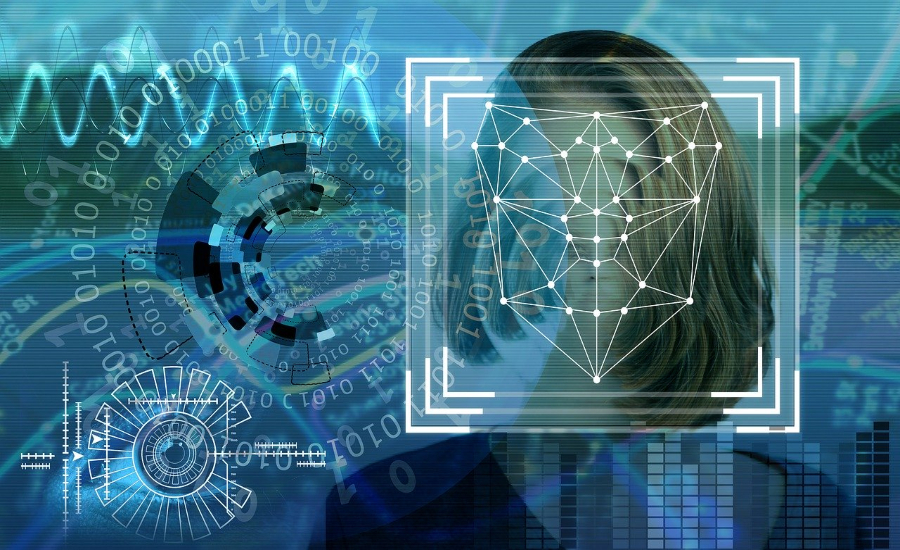Biometric data may be vulnerable to security breaches, identity theft, and unauthorized access. These issues pose significant privacy concerns and raise ethical questions about consent and data usage.
Additionally, errors in biometric technology can lead to false positives or false negatives, impacting individuals’ access to services or facilities. Biometric data, such as fingerprints, facial recognition, and iris scans, is increasingly utilized for identification and authentication purposes. While the technology offers convenience and security benefits, it also presents several potential problems.
From the risk of data breaches and privacy violations to concerns about accuracy and bias, the use of biometric data raises important considerations for individuals, businesses, and policymakers to address. We will explore the key issues related to biometric data and its implications for security, privacy, and human rights.

Credit: www.securitymagazine.com
Privacy Concerns
Biometric data offers a convenient and secure way of identifying individuals, but it also raises several privacy concerns that must be addressed. Unauthorized access to personal data and potential misuse of biometric information are two main areas of concern that need careful attention.
Unauthorized Access To Personal Data
Biometric data is highly sensitive and if it falls into the wrong hands, it can lead to serious privacy breaches. Whether it’s through hacking or unauthorized access by individuals within an organization, the potential for abuse of biometric information is a significant concern.
Potential Misuse Of Biometric Information
There is a risk that biometric data could be misused for fraudulent activities, identity theft, or other criminal purposes. Once an individual’s biometric data is compromised, it can be used to impersonate them, leading to a wide range of privacy and security threats.
Security Vulnerabilities
Security vulnerabilities pose a significant risk when it comes to the use of biometric data. Despite its advantages, biometric data is not immune to security breaches, leading to concerns such as data breaches and identity theft as well as the absence of standardized security protocols.
Data Breaches And Identity Theft
The storage and transmission of biometric data data present concerns related to the vulnerability of hacking and unauthorized access. In the event of a data breach, individuals’ sensitive biometric information can be compromised, potentially leading to identity theft and fraudulent activities.
Lack Of Standardized Security Protocols
One of the major problems with biometric data is the lack of standardized security protocols across different systems and platforms. This inconsistency opens up opportunities for unauthorized access and misuse of biometric information, consequently compromising the overall security of the data.
Ethical And Legal Implications
When it comes to biometric data, there are various ethical and legal implications that need to be carefully considered. From consent and transparency issues to discriminatory practices and biased algorithms, the use of biometric data raises significant concerns that must be addressed.
Consent And Transparency Issues
The collection and use of biometric data often raise questions about consent and transparency. Individuals may not be fully informed about how their data is being used, and they may not have an opportunity to provide informed consent. This lack of transparency can lead to mistrust and ethical concerns surrounding the handling of biometric information.
Discriminatory Practices And Biased Algorithms
The use of biometric data can also lead to discriminatory practices and biased algorithms, particularly in areas such as facial recognition technology. Biometric systems may not be equally accurate across different demographic groups, leading to potential discrimination and biases in decision-making processes that rely on biometric data.
Technological Limitations
Technological limitations play a crucial role in the reliability of biometric data. While the use of biometric technology has advanced significantly, there are still challenges related to accuracy and effectiveness. This can lead to various issues, such as false positives and false negatives, as well as limited accuracy and reliability.
False Positives And False Negatives
Biometric systems are prone to false positives, where unauthorized individuals are incorrectly identified as authorized users. On the other hand, false negatives occur when authorized individuals are mistakenly rejected by the system. These errors can lead to security breaches, access control issues, and operational disruptions.
Limited Accuracy And Reliability
One of the primary problems with biometric data is the limited accuracy and reliability of the technology. Factors such as variations in environmental conditions, aging, and physical alterations can affect the consistency and precision of biometric measurements. This can result in authentication failures and hinder the overall performance of the system.
Future Implications And Mitigation Strategies
The rapid integration of biometric data in various aspects of our lives has brought about significant concerns and challenges, ranging from privacy and security issues to ethical and regulatory dilemmas. As technological advancements continue to evolve, it becomes imperative to consider the potential future implications of biometric data and implement effective mitigation strategies to address the associated risks.
Emerging Technologies And Advancements
The continual advancement of biometric technologies presents both promising capabilities and potential vulnerabilities. The emergence of innovative biometric modalities such as facial recognition, DNA analysis, and vein pattern recognition has opened new frontiers in identity verification and authentication. However, these advancements also raise concerns regarding the potential misuse and exploitation of biometric data, as well as the susceptibility to unauthorized access and manipulation.
Ethical Frameworks And Regulatory Measures
Establishing robust ethical frameworks and regulatory measures is essential in mitigating the risks associated with biometric data. Ethical considerations encompass the responsible collection, storage, and usage of biometric information, ensuring respect for individual privacy and consent. Moreover, regulatory measures need to address compliance with data protection laws, enforcement of security standards, and transparent governance of biometric systems to safeguard against unauthorized access and data breaches.
Frequently Asked Questions On What Are The Problems With Biometric Data?
What Are The Risks Of Biometric Data?
Biometric data risks include identity theft, potential hacking, and privacy concerns. It can lead to unauthorized access and misuse. Additionally, there is a possibility of discrimination and data breaches. Protecting biometric information is crucial to prevent these dangers.
What Are The Disadvantages Of Biometrics?
Biometrics have disadvantages like security breaches, potential data theft, and privacy concerns. It can also be costly and inefficient for large-scale implementation.
What Is The Primary Problem With Biometrics?
The primary problem with biometrics is the risk of data breaches and identity theft due to potential hacking.
What Are The Risk Factors Of Biometric?
The risk factors of biometric include potential privacy breaches and concerns about data security. Inaccurate readings and the potential for unauthorized access are also factors to consider. Implementing proper security measures can help mitigate these risks.
Conclusion
In light of these issues, it’s crucial for companies and organizations to address the potential risks and vulnerabilities associated with biometric data. Implementing robust security measures and ensuring strict compliance with data protection regulations is essential in safeguarding personal information.
As technology continues to advance, the responsible and ethical handling of biometric data will be pivotal in maintaining public trust and privacy.
